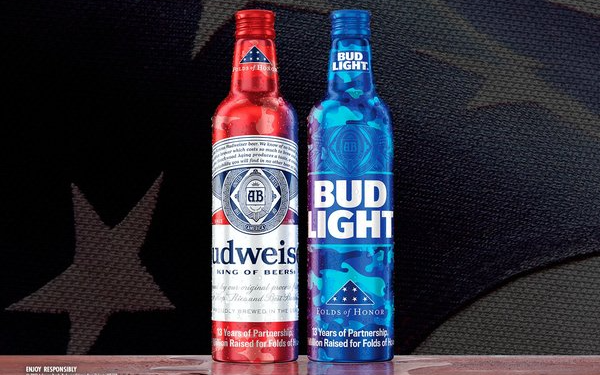
The question on everyone’s minds heading
into AB InBev’s earnings report for Q2 was what impact Bud Light’s sales decline would have on the company’s overall finances.
Back in April, the brand was the target of
right-wing extremist boycotts following a marketing initiative with trans influencer Dylan Mulvaney. The company was then widely criticized for a response that many viewed as failing to support
Mulvaney.
It subsequently made some shakeups to its marketing teamin the aftermath of the initiative, and has recently instituted layoffs
impacting around 2% of its U.S. workforce, as a spokesperson confirmed to multiple news outlets.
The world’s largest brewing company reported total revenue growth of 7.2% for the
quarter, and 5% EBIDTA (earnings before interest, taxes, depreciation and amortization) growth, despite its former category leader’s struggling sales contributing to a 10.5% revenue decline in
the U.S.
advertisement
advertisement
AB InBev also reported that organic volume growth was down 1.4%, with a 1.8% decrease from its own beer brands partially offset by growth of 0.5% and 12.9%, respectively, from
non-beer brands and third-party products. AB InBev’s reported earnings-per-share of $0.72 came out ahead of the analyst consensus outlook of $0.67, according to estimates compiled by the
company, and the company’s stock price rose over 1.4% on its previous closing price of $57.04 as of publication.
Market share declines were responsible for around two-thirds of the 28.2%
EBIDTA, with the remainder accounted for by “ productivity loss, increased sales and marketing investments and support measures for our wholesaler partners.”
The company also
shared some details about how it is approaching investing in its key beer brands through increased consumer research and marketing efforts.
“Since April, we actively engaged with over
170,000 consumers across the country through a third-party research firm, and the data shows that most consumers surveyed are favorable towards the Bud Light brand, and approximately 80% are favorable
or neutral,” AB InBev said in the earnings report. “As part of our long-term plan, we increased investments in our key brands, invested in measures to support our wholesalers and
continued key initiatives such as partnerships with NFL, NBA, Folds of Honor and Farm Rescue.”
On an earnings call, AB InBev CEO Michel Doukeris noted that the company had seen an
improvement in beer market share in the U.S. from May through early July. “The team in the U.S. is working hard to build it back, and to earn back consumers,” he said.
“We’ve learned a lot through interactions [with consumers] so far,” he explained when answering a question about brand equity. “The brand still has very high equity but
people basically want to enjoy their beer without the debate. They want us to focus and concentrate on platforms that all consumers love, and that’s what we’re doing.”
Regarding the remainder of the year, Doukeris anticipated market tailwinds boosting the company and helping it maintain its outlook for the full year, while accounting for “heavy investments
in sales and marketing” for the second and third quarters.